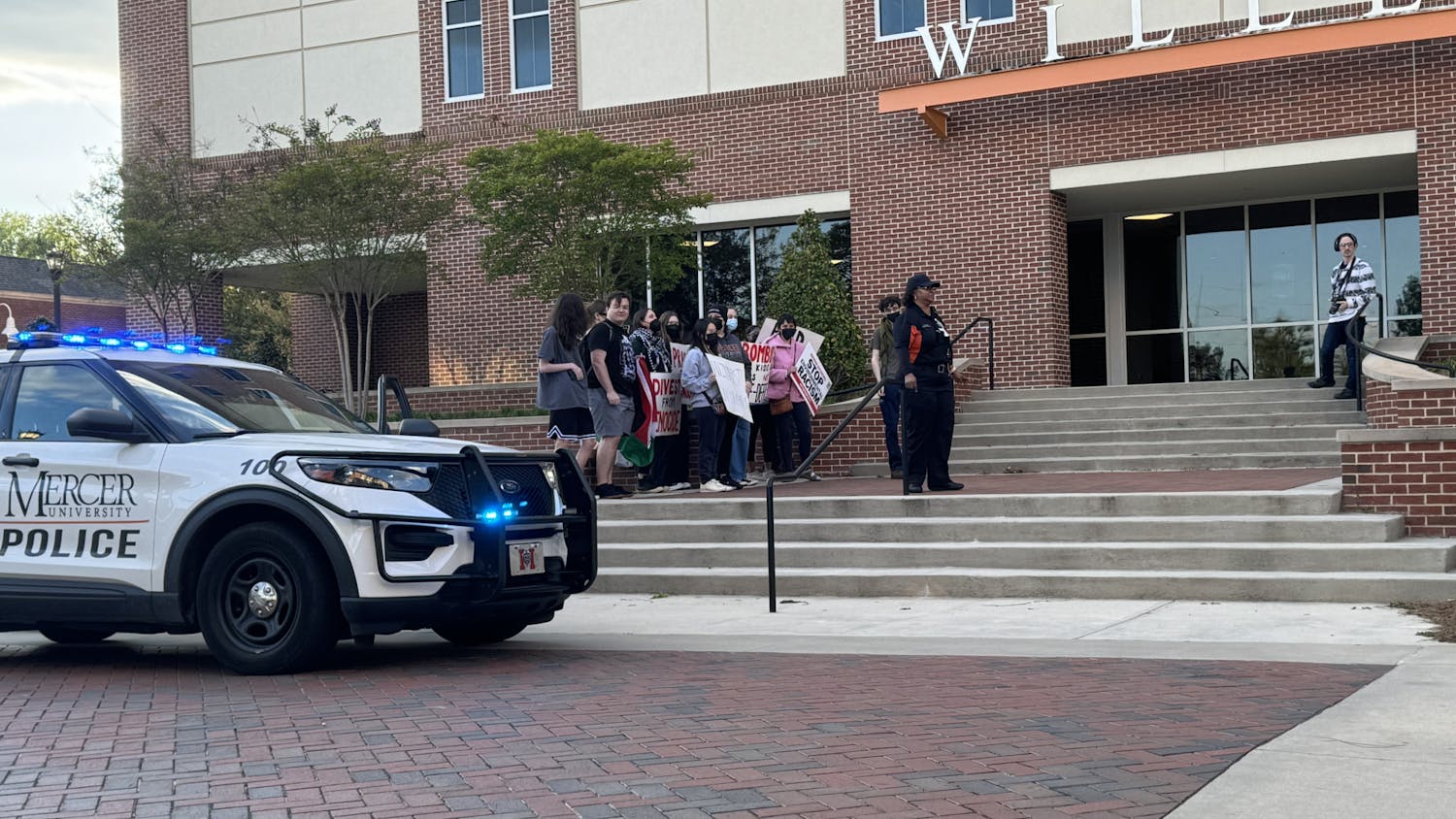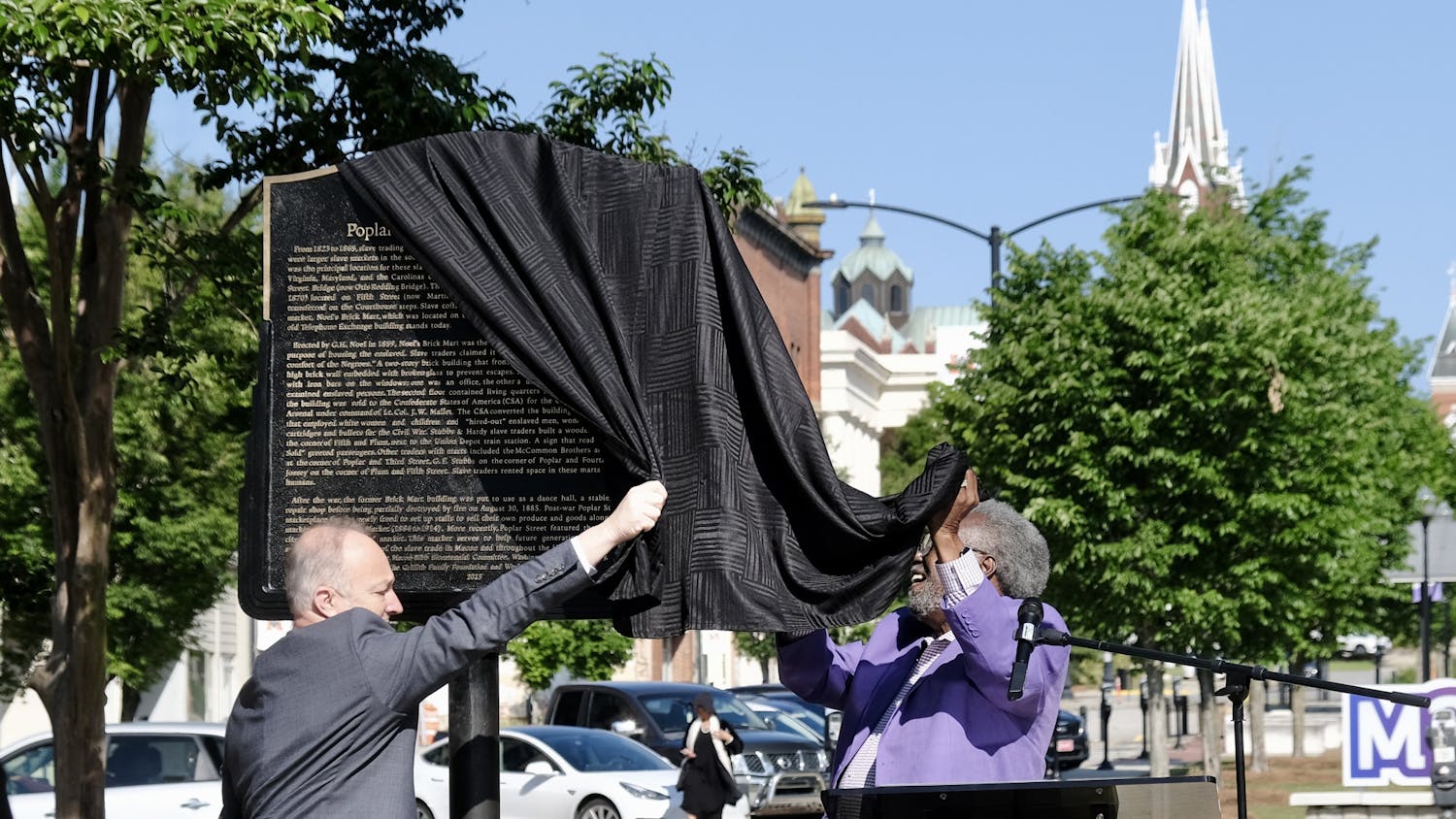
Nearly a third of Georgia voters who will vote in the 2020 general election are under 35 years old, according to the Atlanta Journal Constitution. That’s a growth rate of 68% for the age group since 2016.
College student voter registration in particular surged from 19% in 2014 to 40% in 2018, the AJC reported. And Mercer University students vote at a much higher rate than regional undergraduate populations. In 2018, Mercer’s student body voting rate reached 49.8%.
According to The Macon Telegraph, that’s significantly higher than the average voter participation at Middle Georgia colleges and universities, which sits at just over 40%.
First-time voters at Mercer are ready to continue the trend. Students who will cast their first presidential vote next month told The Cluster what issues matter most to them as they weigh their options.
Climate action, poverty alleviation and LGBTQIA+ rights
Senior Adae Brown, an artist studying computer science, said they plan to vote for a candidate who will combat the climate crisis and take action to alleviate poverty.
“What I was looking for mostly was environmental support, you know, help with the environment,” they said. “Along with, I guess, poverty, and what candidates would help break the cycle of poverty for different people, especially people of color. As a person of color, that's very important to me.”
As a member of the LGBTQIA+ community, Brown also considers rights for gay and transgender folks to be critically important policy points. And as a person of color, they said voting is a duty they take seriously.
“I was also raised where voting was a very important part of growing up and part of being an American, because (of) the Civil Rights Movement … all of the lives lost and all the work behind that movement,” they said.
Health care policy and immigration reform
Zaira Khan, a senior, made up her mind early: she would vote for any Democratic candidate with a chance to beat Trump in the election.
She said her identity as a Muslim woman influences what matters to her in her first presidential election. Specifically, she wants to elect a candidate who will support immigrants and put an end to what many have referred to as “Muslim bans”—the Trump administration’s policies limiting travel to and from majority-Muslim countries like Iran, Libya, Somalia, Syria and Yemen.
“Just being a woman of color, of course, I know that a lot of Trump’s policymakers and the people around him and their supporters just really don’t like the fact that I exist and that I’m an American citizen,” Khan said. “It really is an issue that has been near and dear to me because it’s really hard to turn on the news and see how much people dislike people like you.”
But immigration isn’t the only issue Khan cares about. As a public health major, she’s also concerned with health care policies. Khan has been particularly passionate about reducing health care costs, especially for those with chronic health conditions, since the COVID-19 pandemic began to highlight disparities in the health care system.
“It's really important for me that health care is kind of accessible and kind of open,” she said, “so people aren't basically left to die because they can't get the care that they need.”
Campaign personas and women’s rights
Morgan Simmons, a sophomore, came to Mercer from Texas. Since she lives near the Mexican-American border, she’s seen conservative immigration policies at work, and reform has become important to her.
But one of the most pressing issues, she said, is climate change.
“So obviously, that's something that I'm looking for, probably to go back into the Paris Agreement,” she said, referencing the global pledge under which the United States said it would cut greenhouse gas emissions by at least 26% by 2025. President Donald Trump decreed in 2017 that the U.S. would no longer uphold its statement.
Simmons also said she would want a candidate who supports the Equal Rights Act, a Constitutional amendment guaranteeing women’s rights that has been ratified by 38 states but has struggled to become the law of the land.
Overall, Simmons said she would value a candidate whose campaign persona reflects the attitude of a leader.
She hopes to vote for someone she considers “a person of good character, as opposed to someone who's in it for political gain.”
Upholding patriotism and the U.S. Constitution
Abhinav Prakash, a sophomore and self-identified conservative, said that he’s concerned about several issues in 2020. These include defending the Second Amendment to the Constitution, lowering taxes for small businesses and the middle class, preserving an ethical version of capitalism and reducing government surveillance of Americans’ daily lives.
He also supports reforming Social Security, Medicaid and Medicare, and he said that affirmative action policies at colleges and universities should be reimagined or eliminated.
“Social Security is a necessity for poor regions in the U.S., but I believe that the current system is abusable and that a reform is necessary to ensure that Americans cannot take advantage of the government for receiving personal gain,” he said. “The use and practice of affirmative action is somewhat outdated, and therefore, it should be removed or reformed to stop Ivy League schools from filtering out high-achieving students based on a factor of racial identity.”
Despite his conservative leaning, Prakash said another issue he weighs heavily in this election is what he sees as much-needed criminal justice reform. He’s particularly concerned with the legalization of cannabis, because of reports that Black individuals receive longer sentences than other races for drug possession despite using drugs at the same rates.
“Incarceration rates and murders by officers are incredibly high on Black individuals, and therefore, some judicial reform needs to be put in place to prevent this from occurring in the future,” he said. “Although I am conservative, I believe that the legalization of marijuana can help lower these incarceration rates of Black people.”
In terms of global affairs, Prakash wants to see the U.S. retreat from the United Nations. He said the country contributes too much money to the organization for too little gain. And here at home, he said patriotism and nationalism have become “demonized” values. He wants to support a candidate who upholds those attitudes.
“Nationalism is something that has been converted into a sense of right and wrong, and being patriotic should not be frowned upon in the United States,” he said.





